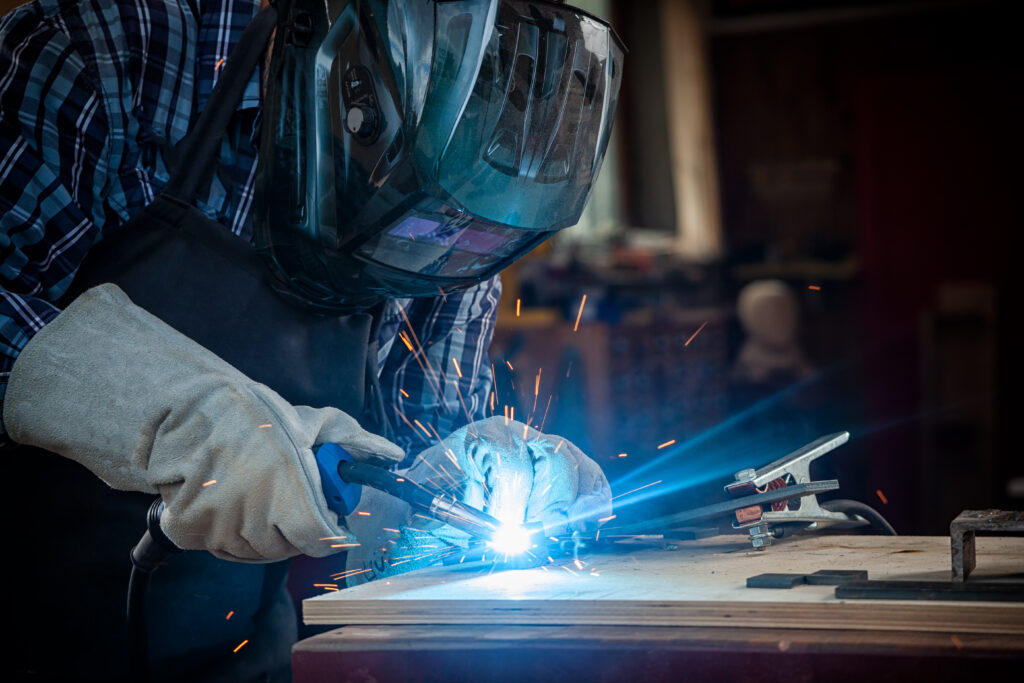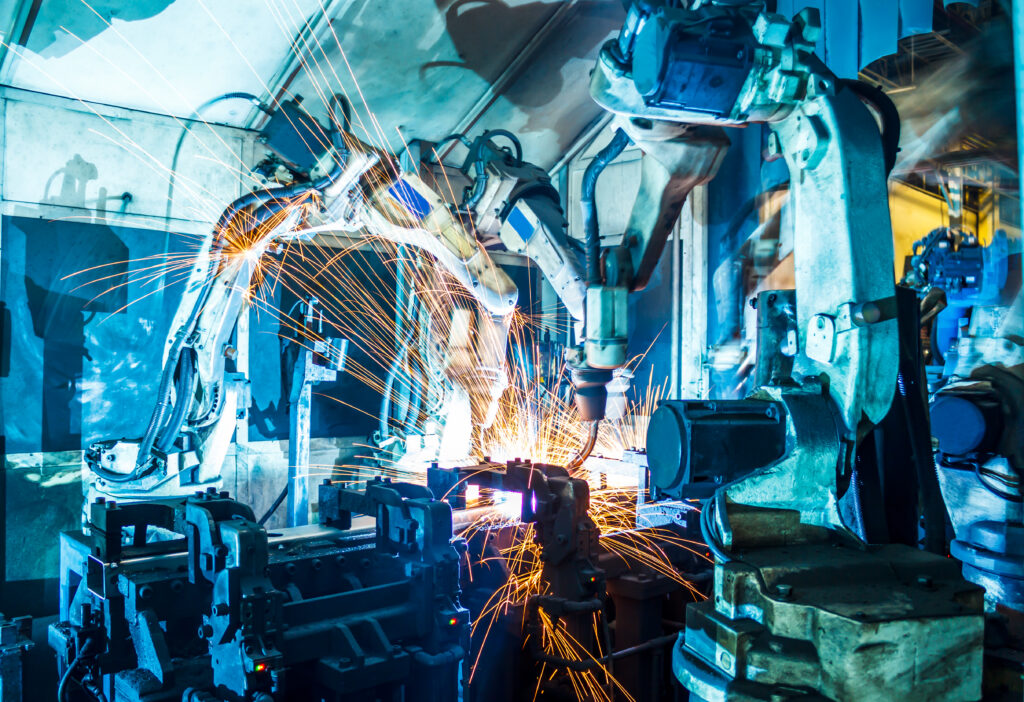Technology improvements to manufacturing and industrial machinery have created robust secondary marketplaces for equipment resale across the manufacturing economic landscape. For hobbyists or professional welders, the secondary market can be an affordable entry point into the practice of welding or the most cost-effective way to stay on the job and replace an outdated or broken machine. Before undertaking either path, the savvy welder should be reminded that there are some serious considerations you must take into account throughout the purchase process. Industrial machine specialists The Equipment Hub has collected 10 major questions you should answer before you decide to purchase used welders of welding machines.

Is Buying a Used Welder the Right Choice for Your Current Situation?
The first set of questions covers whether a used welder is right for your situation, and if so, can you trust that it will last long enough for the type of work that you do.
-
Does Your Budget Say, “Used, New, or Refurbished?”
We need to start with where your head’s at when it comes to being cost-conscious. If there are no budgetary concerns, and you’re an established welder looking for a professional tool, it isn’t necessary to resort to the secondary market. If you do have a specific budget in mind, the secondary market can be a treasure trove of mid- to high- end used welders that will be more than sufficient for your professional needs. For those looking to learn, the used welding machinery route opens the door to a new skill without breaking the bank. If you want the look and feel of new without spending a bundle, you can go the refurbished route, but often refurbished units offer little additional value beyond aesthetics.
-
Is the Remaining Duration of Usage Adequate for Your Intended Used?
If you decide to go with a used welder, you have to take a close look at the unit’s documentation and determine how much of the manufacturer’s suggested duration of usage remains. New or used, you’re still investing a significant amount of money. You want to ensure that the return on that investment over the remaining life of the piece of machinery is adequate to at least cover your cost of purchase, if not generate income before it has to be replaced again.
-
Should You Let Brand Guide Your Decision Making Process?
Upfront, the short answer to this question is absolutely! The secondary market for used welding machines can give you access to some of the top brands in the business, known for creating durable and precise welders, at a fraction of their retail price. Scour the used market and find that welder by the manufacturer you thought you’d never be able to afford and take advantage of the amazing opportunity to work with top-end equipment.
What is the Right Used Welder for the Work I’m Doing?

The next set of questions delves into what sort of work you’ll be doing and what you’re looking to get out of your used welder in the field while on the job.
-
What Type of Welding Work Are You Doing?
You have to match the proper type of welding machine for the job at hand. Deciding which of the five types of welders you should invest in – MIG and Flux Cored welders, Stick welders, TIG welders, or Multipurpose welders – is largely dependent on the sorts of materials you plan to work with as well as the thickness gauges. Multipurpose welders will obviously provide the most versatile approach and value as they will give you access to a mixture of welding methods.
-
Can You Provide Adequate Power for Your Used Welder?
Most single-phase welders can be powered by household voltage levels. More powerful welders, however, will require a generator, and so this must be taken into consideration as an additional expense and undertaking when setting up for welding jobs requiring multi-phase welders.
-
Does it Have Adequate Power Output and Duty Cycle for the Work That Needs to be Accomplished?
Welding on an industrial site requires a welder with higher power output and a higher duty cycle than might be required on the average welding job. Choosing a welder with a higher power output ensures that regardless of the unit’s age, the used welder will be able to hit the higher output requirements. It’s important to remember that duty cycle – that is, the number of minutes the unit must be rested after a specific number of minutes of continuous welding – degrades over time, and you must determine if the duty cycle of a used unit is still adequate to efficiently complete jobs you for which you intend to use it.
-
Is it Portable?
If you’re going to be working on welding jobs where you’ll be moving from site to site, you’ll need a used welder that is lightweight and easy to transport, if not by hand, then with a trolley or some other method.
Is the New Unit in Serviceable Condition?
Just because you’re purchasing a “used” piece of equipment, doesn’t mean that you’re purchasing a broken piece of equipment. These questions address the quality of the used welder and its ability to function in the field.
-
Are the Controls Intact and Do They Provide the Full Range of Control?
The faceplate on many welding machines often includes amperage settings, duty cycles, and other instructions, as well as the knobs and dials that control settings while the unit is in use. It’s important to ensure a used welding machine’s instructions are legible, and that the controller knows and switches properly adjust the machine’s operation while in use, and to the full extent shown on the dials.
-
Are the Peripheral Components Intact and Functional?
The power cords and welding leads of a welding machine are constantly exposed to hot bits of melted metal, which can damage the insulation around these components. It’s important to assess and consider replacing the insulation after purchase before you use the equipment. The welding handle can also be damaged and pose an electrical shock risk, and should similarly be assessed and possibly replaced prior to use.
-
Are the Mechanical Systems Functioning Properly in the Used Welder?
Properly functioning welders should have no issues with their cooling fans. Issues can be apparent if excessive noise is emitted by the fan due to issues with the bearings or bushings. Similarly, in the case of motor-driven machines, excessive colored smoke can indicate any number of engine calibration issues, and excessive knocking sounds are an immediate deal-breaker.
Buy Your Used Welder From a Trusted Source
Once you’ve answered these ten questions, you’ll be ready to take the plunge and know exactly what sort of used welding machine you’ll need. And remember, investing in a welding machine doesn’t have to break the bank. The Equipment Hub’s marketplace showcases a wide array of used welders for sale that will fit into any budget. Contact us today to learn more about our products and services.
Sign Up for Our Newsletter
Sign up for our newsletter using the form below to get company insights and updates directly in your inbox!




